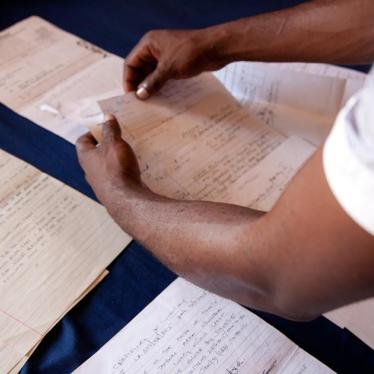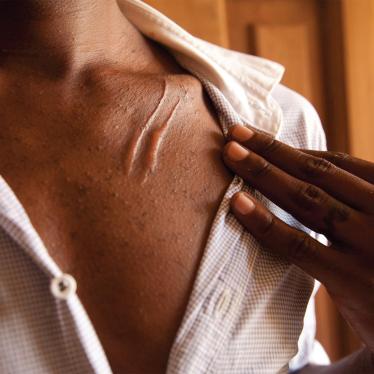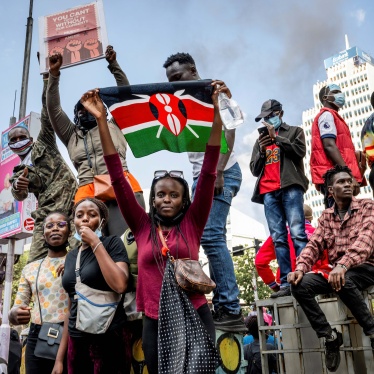Ezekiel Mutua, the head of Kenya’s Film Classification Board, didn’t want Kenyans to see Wanuri Kahiu’s internationally acclaimed film Rafiki. After watching the film, I can see why.
Mutua’s venomous attitude toward lesbian, gay, bisexual and transgender people is no secret. Since becoming head of the film board in 2015, he has waged war against a series of artistic endeavors and events related to LGBT issues. Using the soapbox provided to him as Kenya’s film censor-in-chief, he has asserted vast powers, even attempting to ban a podcast and a speed-dating event. In 2016 he gained notoriety by writing to YouTube to ask the video platform to take down a re-telling of Macklemore and Ryan Lewis’s pro-equality anthem “Same Love” by the Kenyan artist Art Attack.
So it came as no surprise when Mutua banned Rafiki, a love story involving two young women whose fathers are pitted against one another in a local election, even after the film became Kenya’s first to be screened at Cannes, drawing plaudits from global audiences. He claimed the film would “promote lesbianism.”
Director Kahiu hoped to submit the film for an Oscar, but the ban stood in her way: entries must be first released in the country submitting the film. Emboldened by a series of progressive Kenyan court rulings on issues related to LGBT rights, Kahiu took the film board to court, arguing that the ban infringed on freedom of expression. She won a seven-day reprieve, just long enough to meet the Oscar screening requirements, beginning on September 23. Though Kenya’s Oscars selection committee ultimately chose another film, Kahiu’s victory was indisputable: the movie played to sold-out audiences in Nairobi, Mombasa, and Kisumu all week.
As a queer activist, I watched Rafiki, like nearly every queer-themed movie I see, with tension held tight in my belly; the fear that the entertaining plot, the innocent love, the self-discovery, would crescendo toward a moment of unspeakable violence. Because for too many LGBT people around the world, love stories don’t have happy endings. Love can mean brutality, even death. Or arrest, or family rejection.
I curled my toes, dreading what might be in store for the characters Kena and Ziki even while reveling in the film’s true-to-life banter and colorful images of Nairobi’s grit and glory, its dilapidated high-rises, tattered campaign posters, tangled electric lines, neighborhood gossips.
Violence does rear its head in the film. And Kenyan audiences should see this. Homophobic politicians attempt to negate “gay rights,” often raising the specter of same-sex marriage. But Kenyan activists have long made clear that they are fighting first and foremost for something much more basic: the right to be free from violence. Sadly, that right cannot yet be taken for granted. When authorities like Mutua seek to prohibit representations of this reality, which can help build public empathy and understanding, they only compound the problem.
But the most salient take-away from Rafiki for me was not about the violence. It was about love. The love between two idealistic, iconoclastic, intelligent, and imperfect young women. The love that some of their friends and family members continue to hold for them after they are involuntarily “outed,” despite that love being complicated by prejudice.
This is what Ezekiel Mutua didn’t want Kenyans to see. That LGBT people are fully human and beautiful, that they love and are loved, that they bruise and bleed like all Kenyans, that they seek and receive comfort and support. That young women like Kena and Ziki should be able to love, free from violence, and to be loved by their families and communities. That the love between two women is no threat to other people’s enjoyment of their rights.
For many Kenyans, viewing Rafiki may be the first step toward building more empathy and acceptance of LGBT people. That will ultimately benefit all Kenyans – apart from those who seek to instrumentalize homophobia to gain political relevance.
Judge Wilfrida Okwany said in her decision against the film board’s censorship, “I am not convinced that Kenya is such a weak society whose moral foundation will be shaken by watching a film depicting a gay theme.” On the contrary, Kenya’s moral foundation may well be strengthened.






